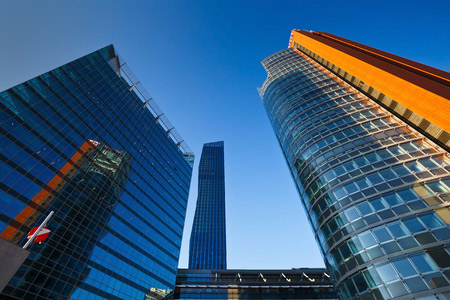Global HFC phase-down agreement on track
24th July 2016
AUSTRIA: A global HFC phase-down agreement is on track after Parties to the Montreal Protocol made significant progress in a series of back-to-back meetings in Vienna this week.
An HFC phase down amendment is now expected to be adopted when the Parties to the Montreal Protocol meet in Rwanda in October.
“We are making tremendous progress and I am optimistic that an ambitious amendment with broad international support will get over the finish line this year,” said US Environmental Protection Agency administrator Gina McCarthy. “We urge all countries to join us in taking the next major step forward after Paris to fight climate change and protect our common home.”
Early in the meetings, the Parties agreed to language on finance, intellectual property, and linkages to HCFCs, the ozone-depleting gases already being phased out under the Protocol. Progress was later made on narrowing the range of baseline and consumption freeze dates for developing countries. However, there are reports that there remains a significant divergence between countries on the climate ambition of the agreement.
“Several of the baseline and freeze dates on the table are counterproductive,” claimed Avipsa Mahapatra, Environmental Investigation Agency (EIA) climate campaign manager. “For example, India has proposed to wait until 2031 for a freeze; if so, it will not be able to leapfrog HFCs and will see a massive phase-in of these super greenhouse gases instead. It is in India’s interests to not only demand more from developed countries, but also to ensure it doesn’t get locked into obsolete technology that will need yet another transition.”
The EIA reports that the European Union and JUSSCANNZ (Japan, the US, Switzerland, Canada, Australia, New Zealand and Norway) submitted a joint proposal to the discussions, offering more lenient starting points for both developed and developing countries than previous proposals submitted by the North American countries and the EU. They were later joined by the African, Pacific Islands, and Latin American countries on a developing country schedule, which is now the most ambitious proposal on the table with an HFC consumption freeze in 2021. India proposes to freeze HFC consumption by 2031, while most other developing countries including China, Brazil, and Indonesia propose somewhere in between.
“Countries are moving in the right direction but there is a huge amount of work to be done to finalise an ambitious amendment in Kigali in October,” said Clare Perry, EIA’s climate campaign leader. “Discussions on the HFC schedule for developed countries lacked the ambition we expect, given that these countries are in a position to fully understand their current HFC consumption and are already taking domestic action to phase down HFCs. Climate leadership needs to be demonstrated through an ambitious commitment from the developed countries, not just words.”
Rita Cerutti of the Climate and Clean Air Coalition (CCAC), a voluntary global partnership of 50 governments, 16 intergovernmental organisations, was more upbeat: “An ambitious HFC phase-down amendment in 2016 is within reach. We have a successful, proven instrument in the Montreal Protocol, a pressing climate need, and a group of motivated, committed Partners. An HFC phase-down amendment is feasible and achievable in 2016.”







